The Palestinian Authority transformed into a Zionist agent of oppression
The Palestinian Authority, which was formed nearly 30 years ago following an agreement between the Palestine Liberation Organization and Israel in 1994 has been heavily criticized for allowing itself to be manipulated by the Israelis into becoming a Zionist agent of oppression.
The Palestinian Authority, since its very inception, has been influenced by British intelligence figures that have had a hand in shaping its direction.
"We need the Palestinian Authority. It does our job for us. We're ready to help it financially. We cannot allow it to collapse."
These are the words of Israeli Prime Minister, Benjamin Netanyahu, regarding the Palestinian Authority which is currently arresting heroic Palestinian resistance fighters in the West Bank.
It is well known that the US military and the CIA have trained the Palestinian Authority to serve Israeli interests. But according to recent work by the Electronic Intifada, it seems that role may have also been outsourced by Israel to British intelligence figures.
Adam Smith International purports to be a Global Advisory company. Through leaked documents, obtained by the Electronic Intifada, it is clear that the shadowy group has been influencing the Palestinian Authority for 15 years. This influence includes a British military officer giving daily direction to the PA.
The British agents dispatched to train those loyal to the Palestinian Authority are:
David Haines, who worked from the British Consulate in occupied al-Quds and helped the Palestinian Authority, establish itself with a particular focus on capacity building. Haines acknowledges working on coordination between British and Israeli intelligence agencies.
Michael Frayne, a former member of Northern Ireland's Royal Ulster Constabulary, who also worked closely with Israel's Shin Bet against what he termed 'Islamic based terrorist organizations'.
Anthony Malkin, a former British Army Colonel and military intelligence officer, established the Palestinian Authority training school and designed courses for its officers.
David Robson is a former British Army intelligence officer who later went on to become the commander of the 1st Signal Brigade, a UK-NATO army unit.
John Deverell, former Deputy Commander of Operational Intelligence in Iraq, also oversaw the Palestinian Authority in Ramallah. He did this directly under the supervision of the infamous US General Keith Dayton, who described Deverell as "the finest senior strategic mind I have ever encountered".
What is the true extent of British service to the Zionists in occupied Palestine?
Asa tell us about this statement from Benjamin Netanyahu that Israel needs the Palestinian Authority.
At the end of June it came out in the Israeli media that, in a private interior Security Cabinet meeting, Netanyahu had said this to his senior ministers that they couldn't allow the Palestinian Authority to collapse.
With the rise of the armed Palestinian resistance in the West Bank in the last couple of years, the Palestinian Authority’s armed forces have increasingly lost control of certain areas of the West Bank which form the sort of the headquarters of the of the resistance.
And it has meant that there are areas, specifically the Jenin refugee camp and areas of Nablus, which are increasingly out of their control.
And so there's been increased speculation that the Palestinian Authority could collapse especially when its current leader, Mahmoud Abbas , dies because he's, he's reaching 90 years old now. And so, you know, Netanyahu declared his intent to prop up the Palestinian Authority financially if necessary.
Asa Winstanley, Investigative Journalist
What do you make of Britain's influence on the Palestinian Authority?
Well, it's very interesting that not just the CIA, but also British intelligence have been involved in, in working there. And you see, it's just part of a pattern of British involvement with the agencies which they think can pursue their interests.
In Syria we saw the propping up of the so called "moderate rebels", the Islamist groups which were fighting against the Assad government, and we've seen in Ukraine Of course, propping up the Nazi battalions allied with the Ukrainian government.
In this case, we've got secular nationalists who are being propped up by British intelligence, ... shows the way in which British intelligence operates, that it will take whatever it thinks it can to pursue its interests, and it will use them to try and point them in a particular direction.
And this, of course, shows that what they're doing is that the Palestinian Authority is being used as an implement and as a vehicle for Western interests as well as to help to prop up the Zionist regime.
David Miller, Academic
I wonder whether you could say a word or two about Adam Smith International.
The best way to describe Adam Smith International, as we described it in the piece was that they are, essentially, a spy contractor, they are mercenary spies, it is a kind of outsourced form of British intelligence really, and it poses as a sort of development agency.
But what it does is it gathers information around the world on the pretext of all these projects, and sometimes they even have, I mean, we have previously covered, from the same set of leaked documents, how they were using an academic pretext, sending young "researchers" into Palestinian refugee camps, to essentially spy on Palestinian refugees.
And Adam Smith International has these kinds of operations all around the world, especially concentrated in West Asia, the Middle East, and Africa, but (also) anywhere where British security and intelligence deems that it has its own sort of "national interest".
Asa Winstanley, Investigative Journalist
It seems to be a trend, doesn't it, where they are outsourcing the sort of intelligence operations to the private sector?
Yeah, it's increasingly, as David mentioned, the CIA, the British intelligence services and also the Israeli intelligence services, outsource their operations to cut out entire organizations, not an entirely new phenomenon, but in the last couple of decades, essentially especially we've seen increases in a kind of privatization of spying.
Asa Winstanley, Investigative Journalist
You mentioned Syria in your previous answer. What do we know about Adam Smith international's links to the war on Syria?
So, in the case of Syria, the British were involved in creating a whole range of different cutouts and then spending millions and millions of pounds on different contractors, one of which is Adam Smith International.
Adam Smith International were involved in many of the operations to support the war against the Assad government, to try and bring down the Assad government, which was an objective of Western foreign policy. And they were, in fact, running the police force in what they refer to as "liberated areas of Syria", i.e., areas that the armed groups have taken from the government of President Assad.
And it was even revealed on Panorama that they were effectively, the Adam Smith International were working directly Al-Nusra, the al Qaeda affiliate in Syria, and it's such a scandal that they had to stop doing that and the whole project collapsed.
But they were involved in a whole series of other projects were it was clear that they were involved with Nusra affiliates, with al Qaeda affiliates, and indeed, to some extent, with ISIS in Syria, and this was of course, part of the strategy of the British government was to work with these organizations and pretend that these were moderate guerrillas who are just engaged in a struggle to bring down the government but actually, of course, they ended up working with organizations which, in the UK, would be regarded as terrorist organizations.
And if anyone here worked with them, they will be put in jail as a terrorist but nevertheless, the British government was working directly with these organizations. And so yeah, that's the kind of the morality and the politics of these projects.
David Miller, Academic
That's astonishing, how do they kind of rationalize how do they justify them? I mean, what was the purpose behind this?
They rationalize and justify it in terms of British foreign policy objectives and that's the same as their involvement with Ukraine, and we're working closely with Azov and the Right Sector in Ukraine, and the same as they operate their oppositions.
In general, if secular nationalism in the Middle East opposes British imperialism while they work with some other organization that opposes it.
But if secular nationalism, in the form of Palestinian authority, can be a useful vehicle, as far as they're concerned, they will work closely with that; they don't mind as long as it's pursuing Western interests, their conception of Western interests.
David Miller, Academic
You have written about Adam Smith international spying on Palestinians in refugee camps. Could you clarify that for us, please?
Yeah, this was these agents of Adam Smith International were former British intelligence and military agents, essentially. And so they did all this kind of spying.
And what was really interesting was the large degree of crossover with the project that David just mentioned in Syria, some of the personnel who were involved in this spying on the Palestinian refugee camps, and what we describe as infiltration of the Palestinian Authority and direction of the Palestinian Authority, also (the agents) either went on to work for, or had previously worked for, this so called Free Syria Police Project in Syria, and that was the public face of it, that it was to promote democracy and freedom.
And these were unarmed police, ostensibly, but what that meant in practice was they ended up having their security or their "protection", which was essentially al-Qaeda. And so even though it was wrapped up after the panorama exposure, and there was [sic] questions asked about it, publicly, it was wrapped up.
What we found in these documents was they were still promoting it internally in their bids to the British government, because of course, this is a private company and is a profit making company, a very wealthy company, and, on paper, they have to make all these bids to the British government, and they were still promoting their success in Syria and the Free Syrian Police Project.
And so they went on to do these other projects like spying on Palestinian refugees, the stated goal there was, actually, to combat al-Qaeda in the West Bank, that was the stated goal.
So this is the irony; they were working with the al-Qaeda in Syria, and yet, they wanted to combat al-Qaeda in the West Bank! It is a very unlikely story, especially considering there's no presence of al Qaeda in the West Bank.
And in the Gaza Strip, there's only ever been a very minimal presence of al Qaeda, which was removed and neutralized by the Hamas authorities.
Asa Winstanley, Investigative Journalist
What is the Palestinian Authority doing to cull resistance in the West Bank?
Well, I mean, it's taken on a very dubious role, hasn't it? It's been there to support and coordinate with Zionist forces, with the Shin Bet, the Israeli intelligence agency, and as a result, internally in the Palestinian Authority, there have been splits.
Some of the people who were formerly part of the armed wing of the PLO, the brigades; they have actually joined the resistance and fought with Hamas and Palestinian Islamic Jihad and the PFLP. But, in general, the Palestinian Authority has not done that and has continued to coordinate in security terms with the Israelis, and indeed, of course, has been coordinating in the sense of actually actively stopping resistance fighters going to confront the Israelis, and that has led to widespread alarm and distress, distaste for the Palestinian Authority, such that they've even had some of their facilities fired upon by the resistance.
And then of course, they've arrested a whole series of people from the resistance and the resistance of said, these are political arrests, which they manifestly are, but the Palestinian Authority says, No, these were criminals; they were rude about the Palestinian Authority.
And it's a really dangerous course for the Palestinian Authority. And of course they may, as Asa has said, they may collapse as a result.
David Miller, Academic
The Palestinian Authority and its critics
Outspoken Palestinian political analyst, Nizar Banat, was killed at his home by agents of the Palestinian Authority in June 2021.
Nizar was very active online, regularly commenting on events in the region. Unlike others in supposedly pro Palestinian circles, he criticized the NGO industrial complex and was grateful to the Islamic Republic of Iran for its key role in the Resistance Axis against the Zionist entity.
Perhaps his clarity was the reason the Palestinian Authority targeted him. Nizar Banat had been arrested several times on the totalitarian charge of "inciting strife against the Palestinian Authority" due to posts on his personal Facebook account.
Benat was the head of a Palestinian political grouping named the Freedom and Dignity List. He had intended to participate in the 2021 Palestinian legislative elections, before they were postponed by the Palestinian Authority.
Following that decision, Banat called out the Palestinian Authority online and requested that the European Union cut aid to the quislings for their own democratic practices. His house was then attacked by PA forces in response with a team of agents invading his home and beating him to death.
CCTV footage shows his lifeless body being dragged from his house and dumped into a waiting car by PA personnel.
This was the ultimate conclusion of a life lived in struggle, but the solid commitment, principles and clarity, of Nizar Banat will live on forever through his many social media lectures.
Despite throwing their worst at him, Nizar Banat chose to die on his feet rather than live on his knees, and though they killed the man, they could not kill the idea.
What was NIZAR BANAT's position on the Resistance Axis?
Well, he was a big supporter of the Resistance Axis. And of course, what that means is a big supporter of all of the resistance operations with Hezbollah, in Iraq, In Yemen, and of course, the support given by both the Syrians and, most obviously, the Islamic Republic of Iran.
I talked once a few months ago about Iran and I got some criticism for defending Iran and my response when people say about Iran is if you want to know about what its position is on Palestine is, ask the Palestinian resistance, and when you do go and ask the Palestinian resistance, they are very clear, Hamas is very clear, Palestinian Islamic Jihad are very clear, the PFLP are very clear, that they welcome the support from the Islamic Republic of Iran. And it's crucial in their resistance against Zionism.
David Miller, Academic
You actually met Nizar Banat a number of years ago, would you tell us about that encounter, please?
I was present at a conference of the BDS National Committee around a decade ago and I wrote a couple of reports about it at the time for the Electronic Intifada.
It was in a national conference in Palestine in occupied Bethlehem, and it was an interesting conference and there was a panel in which there for whatever reason, and one of the ministers of the Palestinian Authority was speaking and it was it was a national conference, so It was obviously all in Arabic, but there was a decent budget and there was simultaneous translation put on for guests like myself.
And the Palestinian Authority minister was, basically, spewing sort of these kinds of, you know, just generic interventions, where he was trying to say that the Palestinian Authority was involved, trying to claim credit for boycotts and so forth. And someone got up from the crowd in the Q&A session and criticized him and said that the Palestinian Authority are the people who are leading the coordination with Israel, so how can you talk about boycotts of Israel when your forces are actually, essentially, collaborating with the Palestinian Authority security forces?
Well, this man was later revealed to me that it was Nizar Banat, and it was only years later that I put the incidents together, but he was a very well known activist, his videos were incredibly popular.
And yeah, even after that event, you know, he was roughed up, he was beaten up by the minister's goons immediately after that event.
And it was, you know, it was a story at the time in local media and the, you know, the minister was then basically chased out.
He fled the event, he was sort of embarrassed at the event because he started to, you know, my impression was that Nizar Benet had been quite polite in his intervention, but the minister responded and said he was barking like a dog.
Asa Winstanley, Investigative Journalist
What was the response of the audience?
People were supporting him; they were applauding him and so forth. I don't really understand why the minister was invited in the first place, to be honest, when the Palestinian Authority has done its best to undermine the BDS movement all along and that's been its role but yeah, Nizar Banat's videos were,...when you were you go on to his Facebook page, and it was, you know, I believe he had hundreds of thousands of followers and his videos, in very vernacular, Palestinian Arabic were very down to earth and they spoke to the people, spoke to the masses.
Asa Winstanley, Investigative Journalist
You mentioned Facebook, the Palestinian Authority are arresting people for for social media posts, aren't they, what do you make of that?
Yes, I mean, just for putting on your own Facebook that you are opposed to, or you have criticized in some way the Palestinian Authority and people are being locked up for these things. And, and there's a real sense in, especially in those areas of the West Bank that Asa was talking about, in Nablus and in Jenin, that the Palestinian Authority is over and that there will be no more collaboration with them.
The statements received from the armed groups, the armed resistance factions in the West Bank, they're all quite restrained, in some respects, in the sense that they're not declaring war directly on the Palestinian Authority, although there are actually clashes happening, but its very clear that the next step would be open confrontation.
And that's the logic of this, if they continue with the cooperation with Israel and helping, actually helping Israel to arrest and assassinate and torture resistance fighters. Well, that's not going to go well for the Palestinian Authority.
David Miller, Academic
Tell us about the series of events that followed Nizar Banat's call on the EU to to cut funding to the Palestinian Authority.
Well, the Palestinian Authority is supported by the EU and by the Western powers and by Israel.
You know, we've seen that that is what happens and there was criticism, you know, after he was killed by the Palestinian Authority, there was this kind of criticisms from EU officials, especially. And there was a sense of sympathy.
There was even a piece in the Jewish Chronicle, of course, the Jewish Chronicle, very pro Israel newspaper, omitted all his actual views. They just said, ‘Oh, he was a political opponent of the Palestinian Authority’, and they were using it as a way to criticize the Palestinian Authority.
But they admitted the fact that he was very explicit in his support for the armed resistance and as you said, the support of Iran for the Palestinian resistance and he had one particular video, as you can see, translated into English, where he talks very sarcastically about critics of Iran in the Arab world who say, you know, oh, yeah, we support resistance, but we're against Iran because they're trying to achieve objectives.
And he said, Where do you think you get your rockets from? Where do the arms come from? They come from Iran.
Asa Winstanley, Investigative Journalist
What was the response of the Palestinian group to the killing of Nizar Banat?
There's been outrage and it's been a long process, essentially through his family, trying to get justice for him and of course justice has been denied.
There's been no proper investigation. People who were arrested for his death have been allowed out on bail and have been released. So there's been no proper response to this.
And of course, he's kind of an iconic figure, and of course, the Palestinian groups support him as they develop their kind of, what they call the call, their operations and presence.
The unity of the fields, by which they mean that all the different factions are working together in new groups, which contain people from both Palestinian Islamic Jihad and Hamas and the PFLP and sometimes the Democratic Front for the Liberation of Palestine.
They are all acting together to target the Israeli forces when they try and invade the refugee camps, like in Jenin, for example.
David Miller, Academic
VIDEO | Press TV's news headlines
Child detentions surge under Trump deportation campaign: Report
VIDEO | Trump's Gaza 'peace plan' dismissed as 'one-sided and unworkable'
Sheikh Qassem: Hezbollah foiled objectives of enemy’s aggression
VIDEO | Transatlantic rift at Munich Security Conference
‘Textbook definition of terrorism’: Tehran denounces Pelosi’s call on US to exact ‘pain’ on Iranians
VIDEO | 39th AU summit opens in Addis Ababa with focus on water security, peace, and development
VIDEO | Iran: The stronghold Washington lost


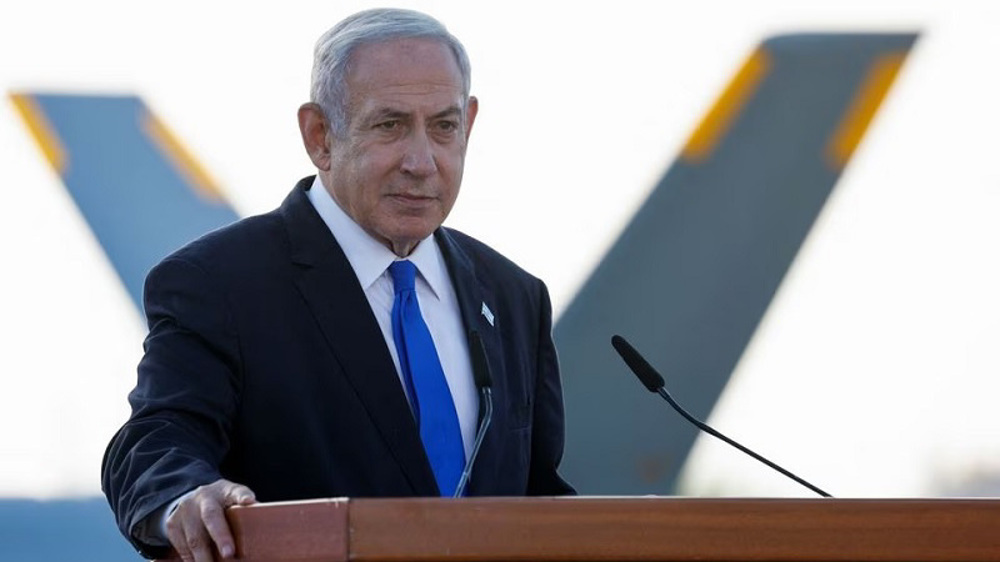
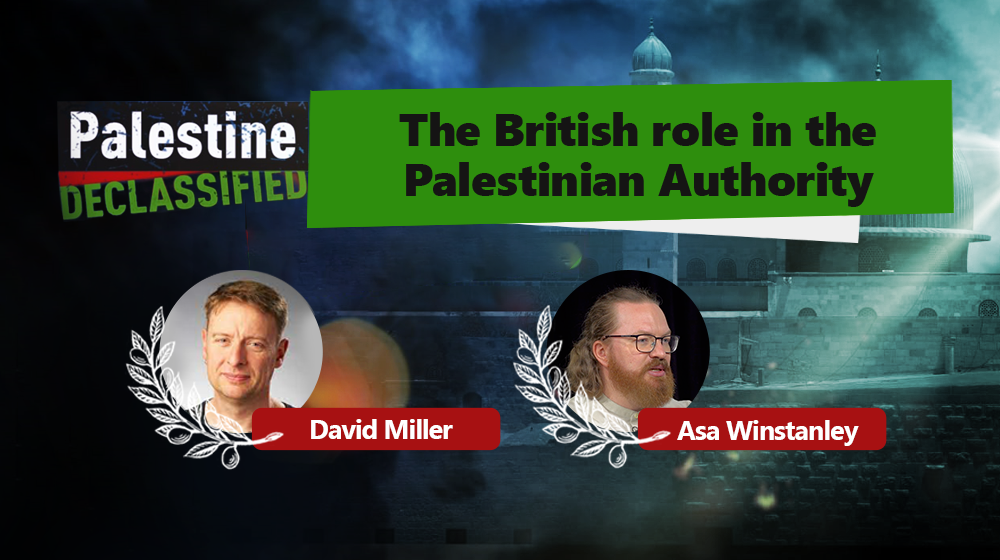
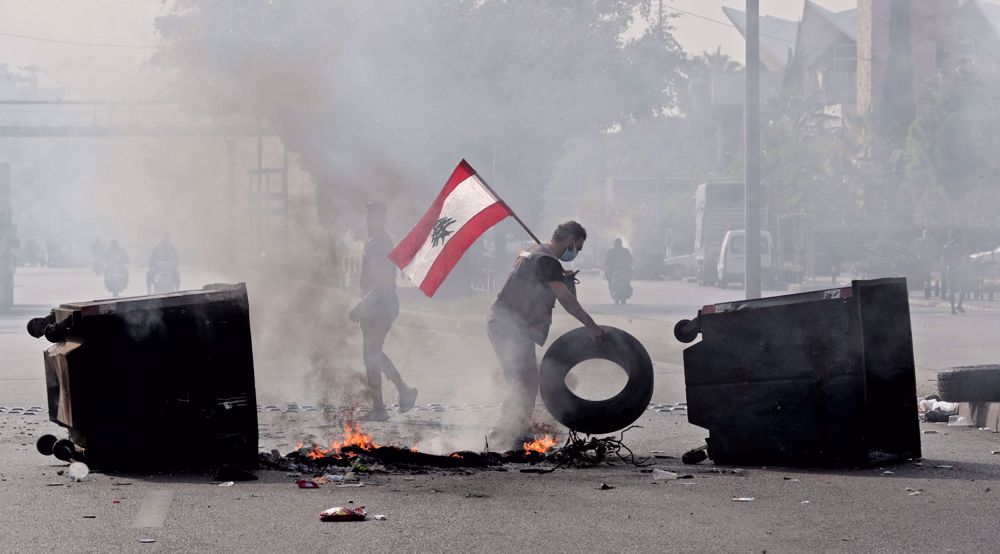
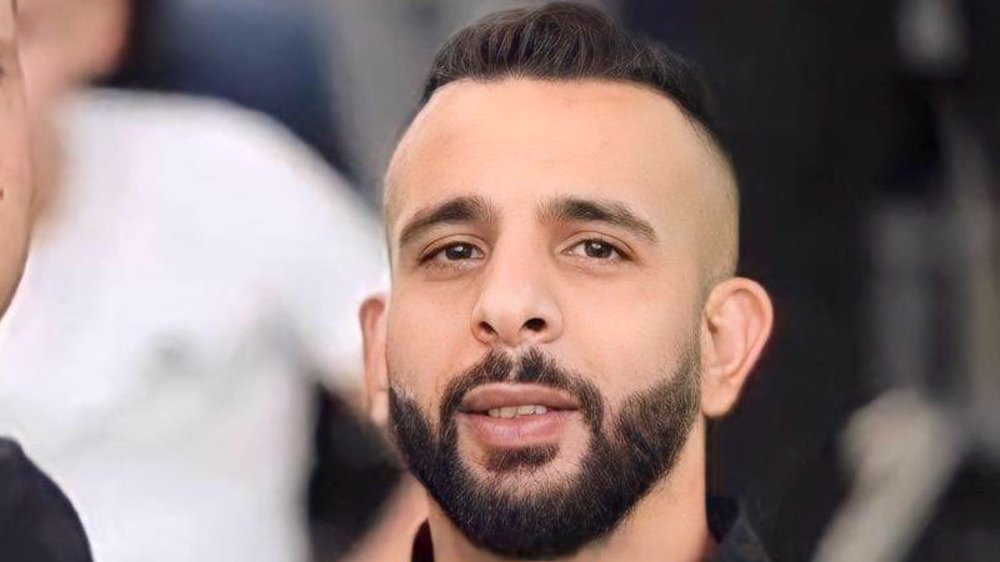
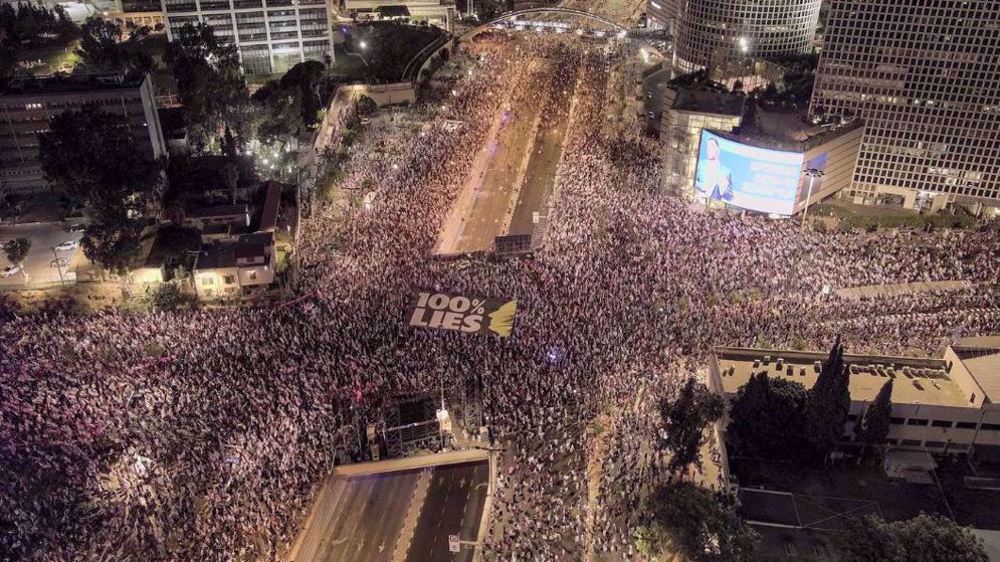
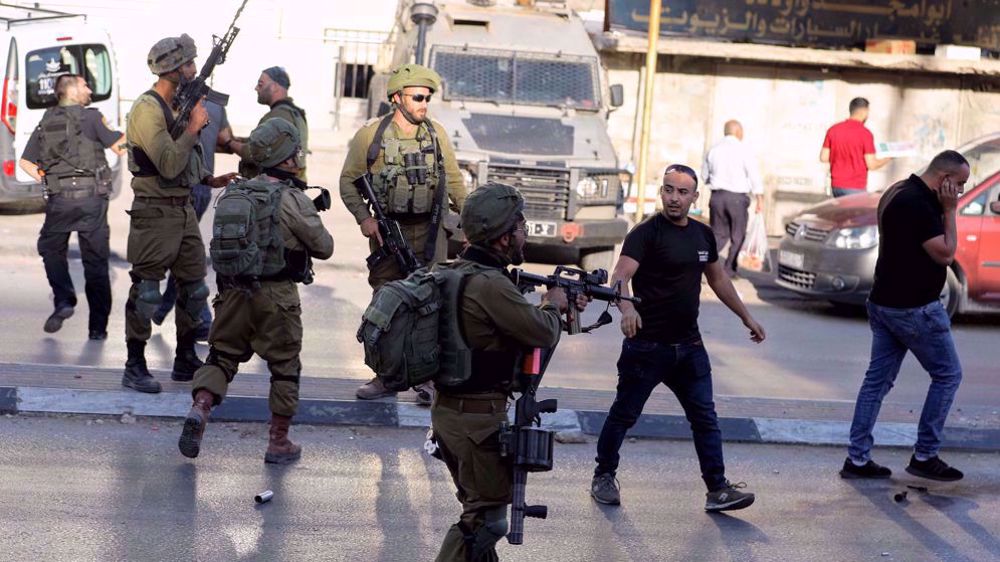
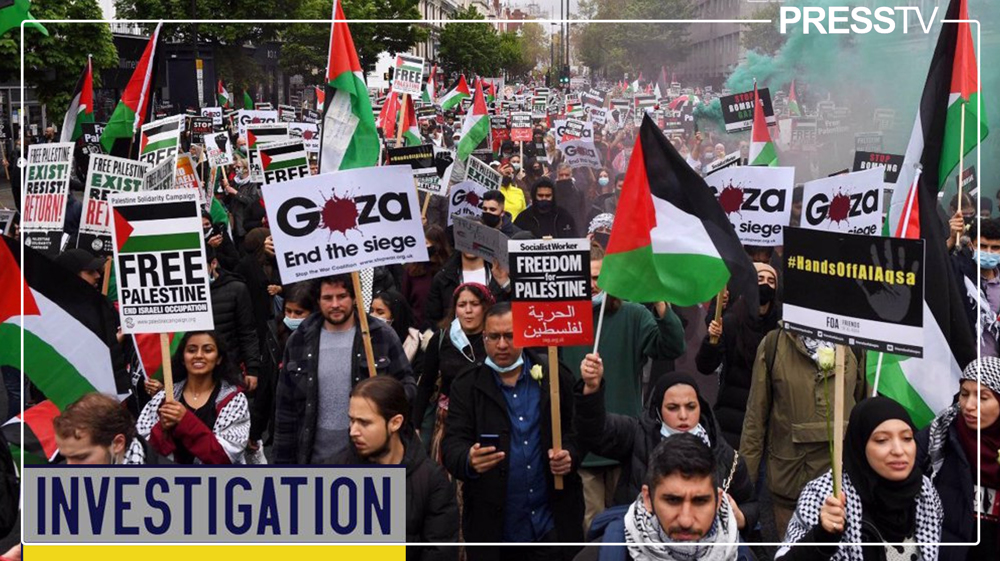
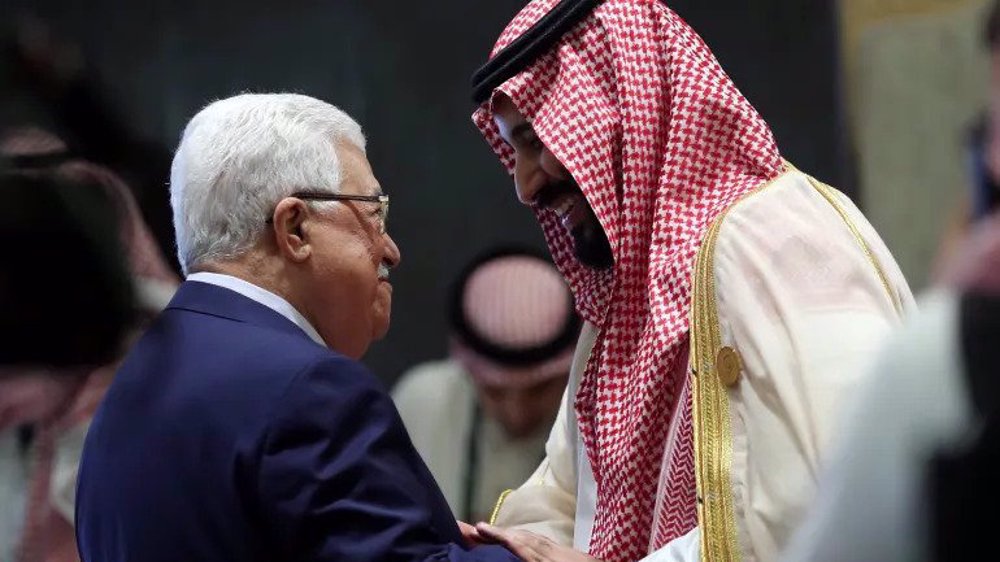
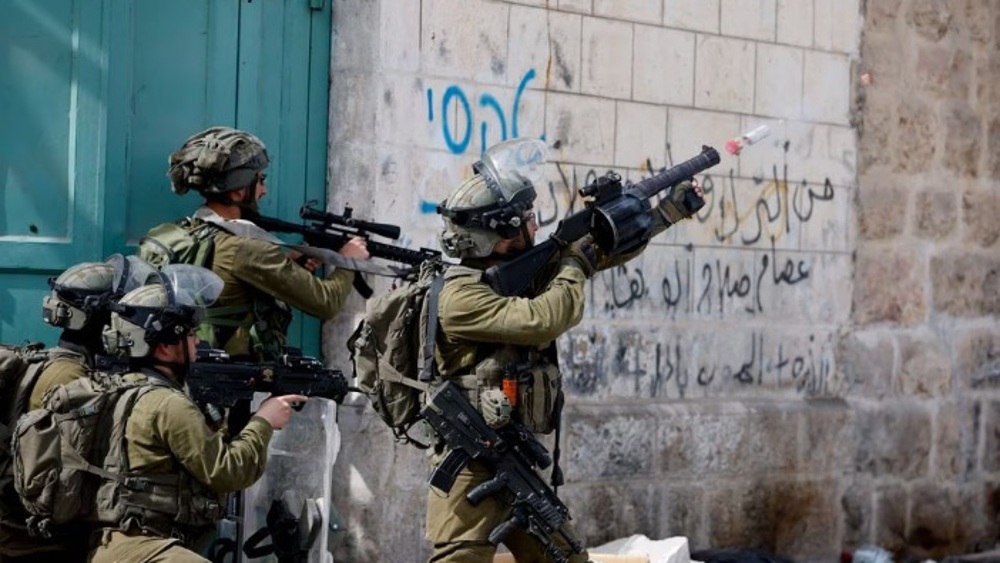
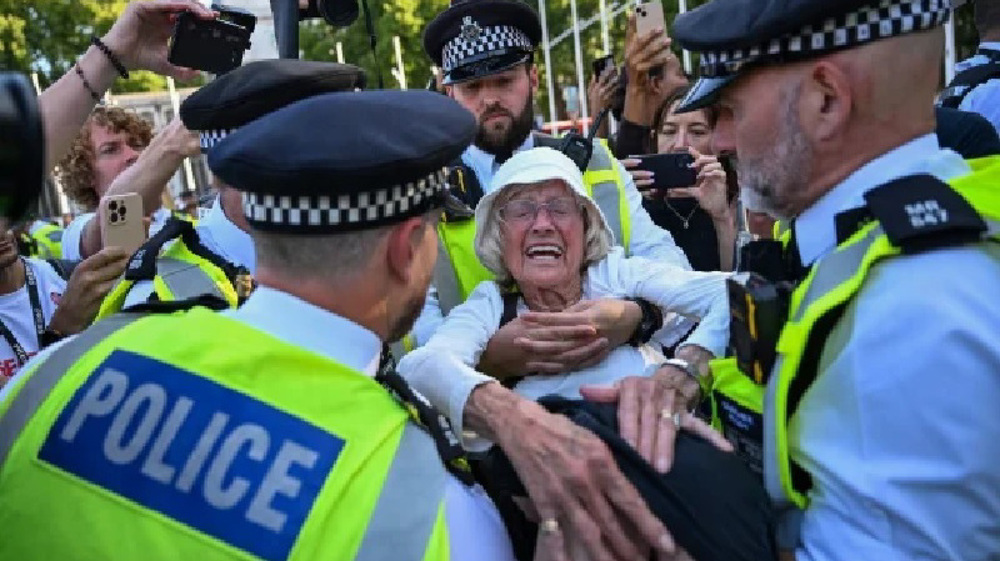
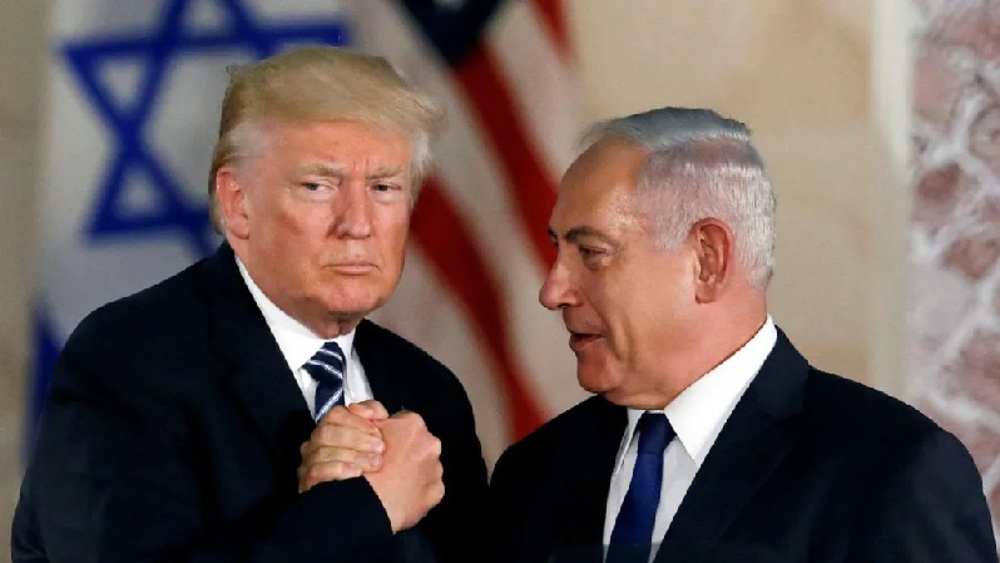




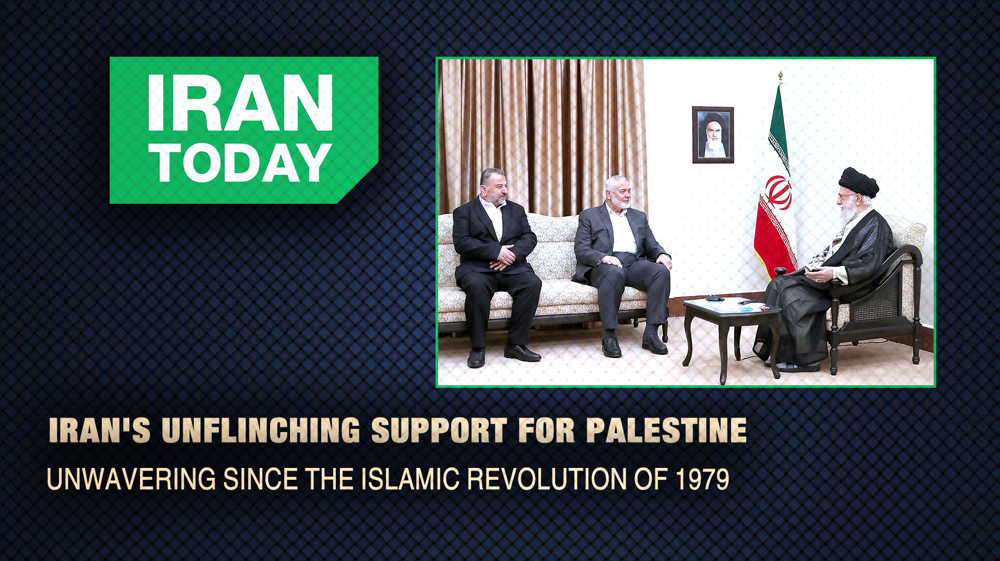
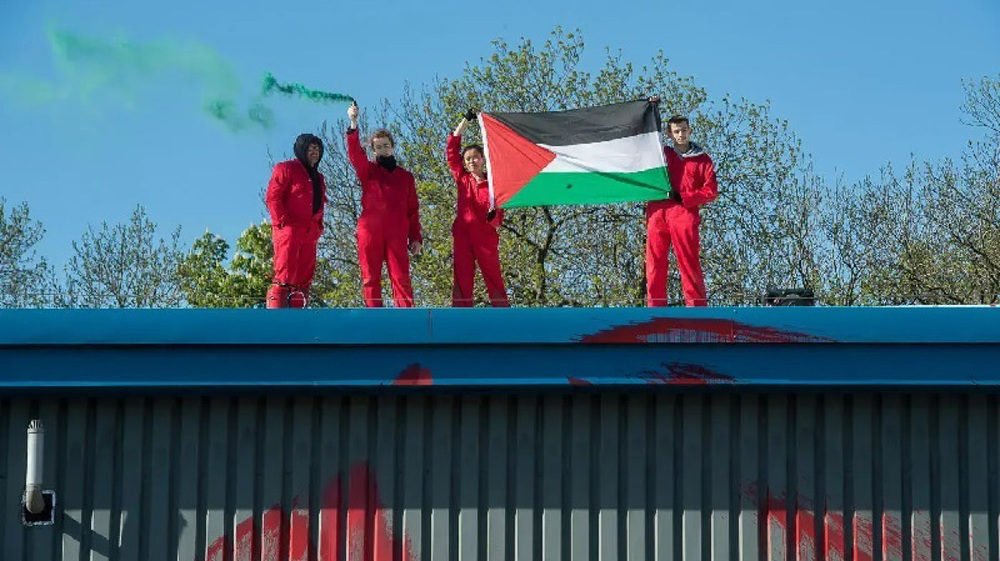
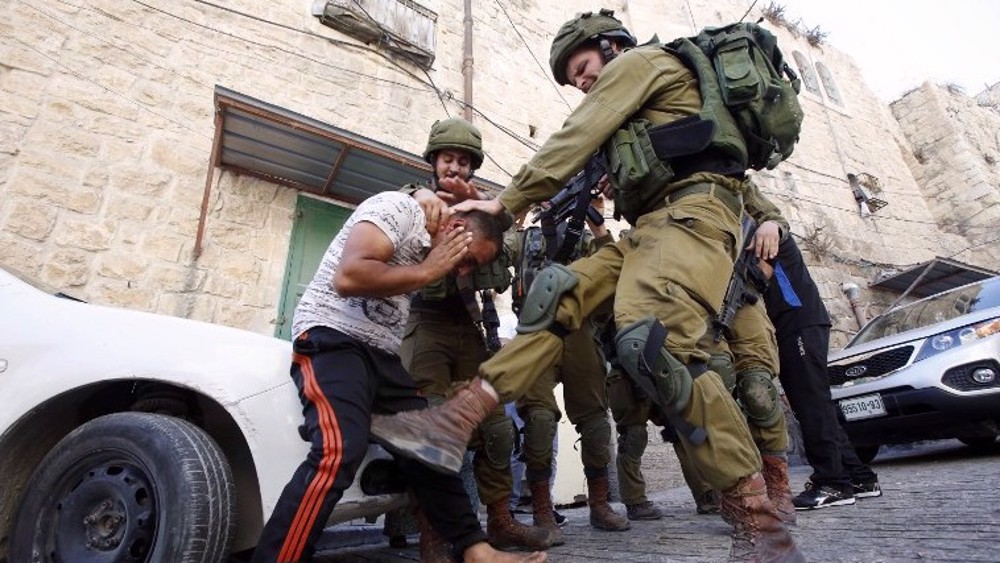
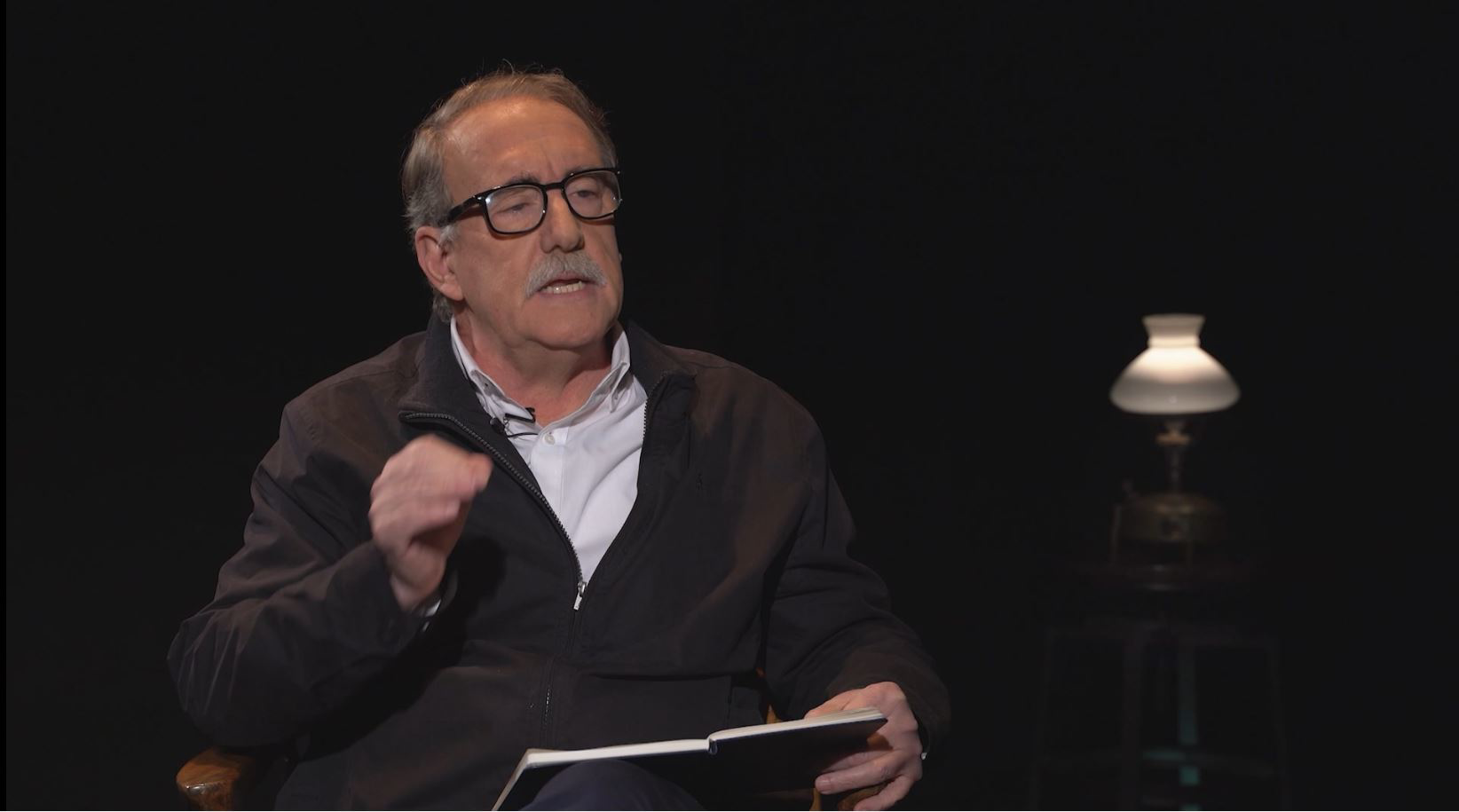
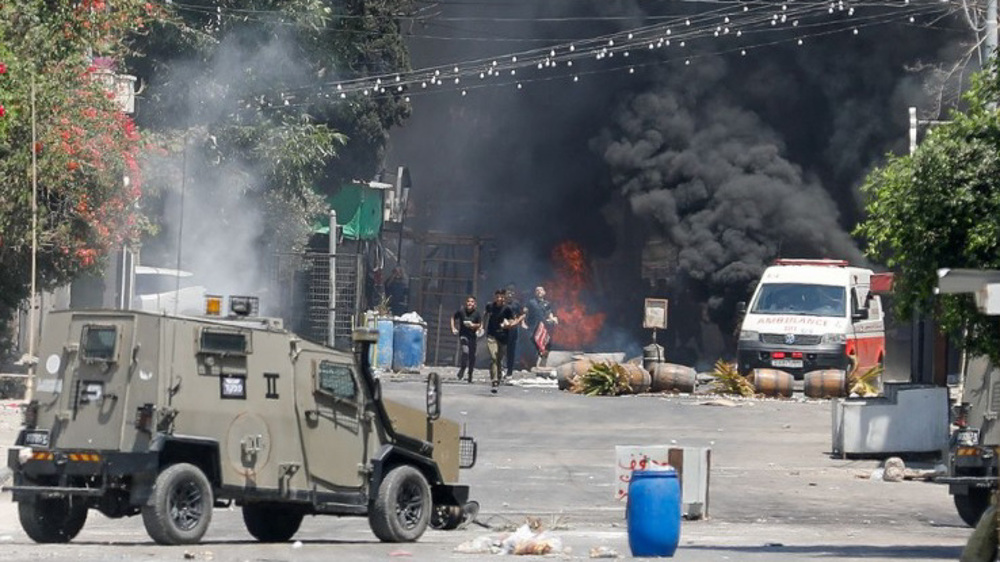
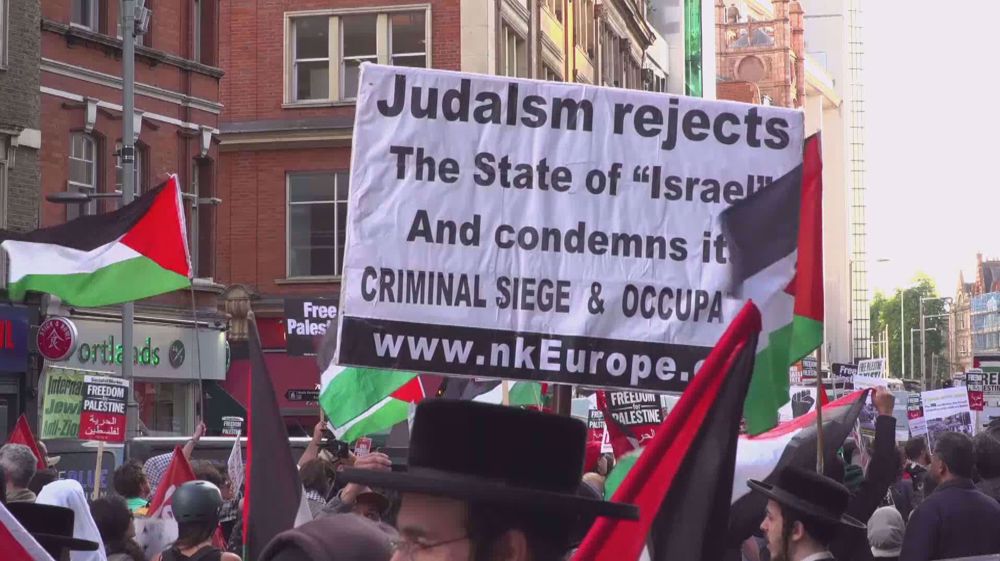
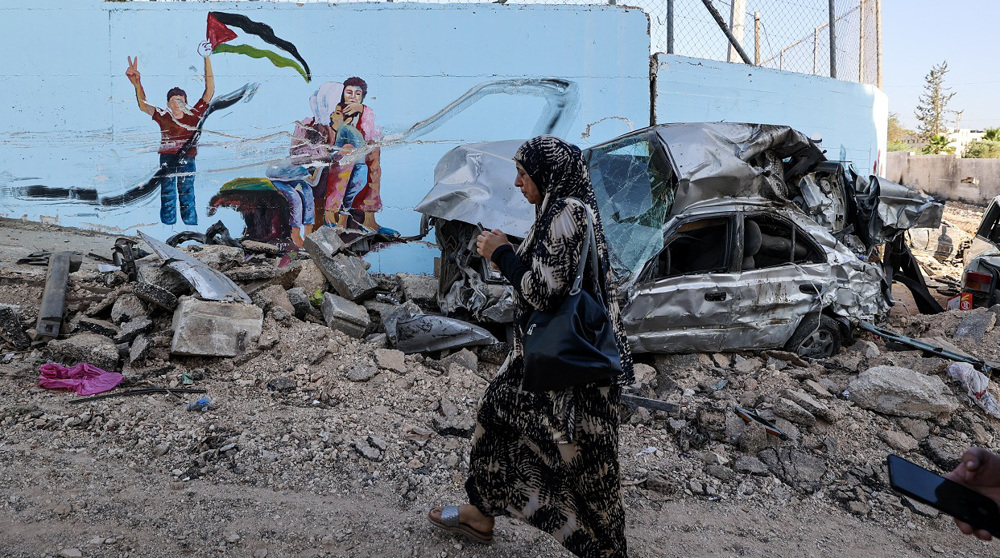
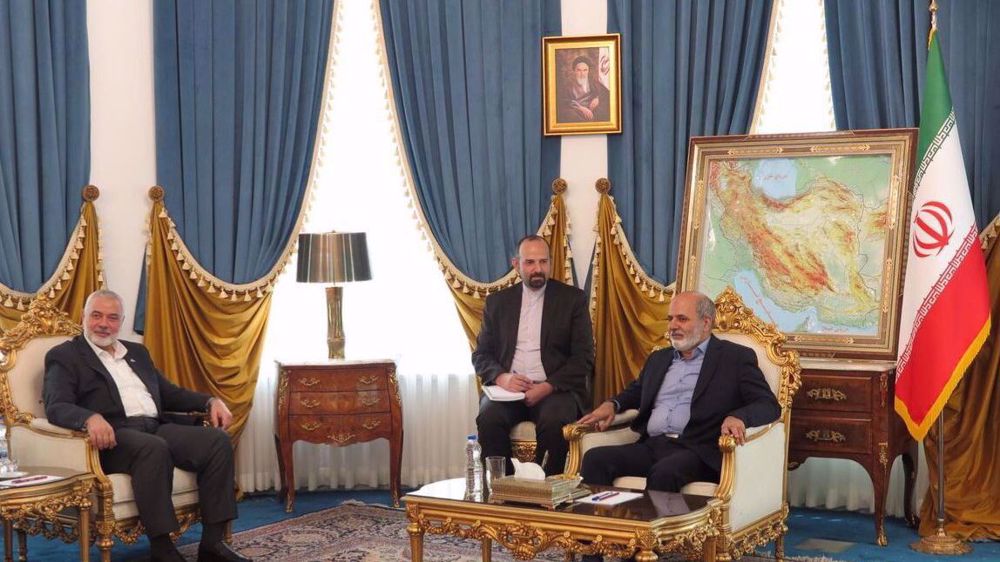
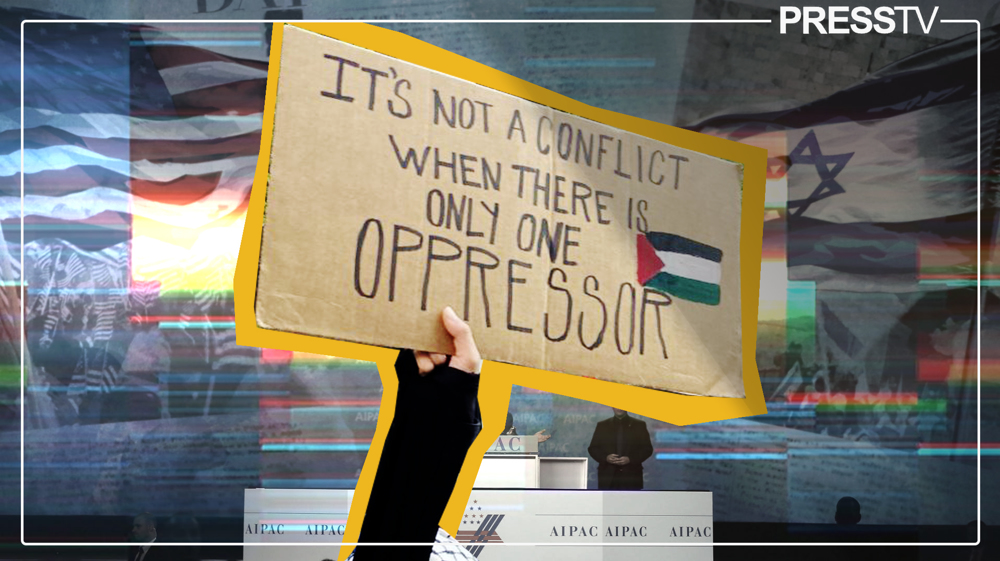
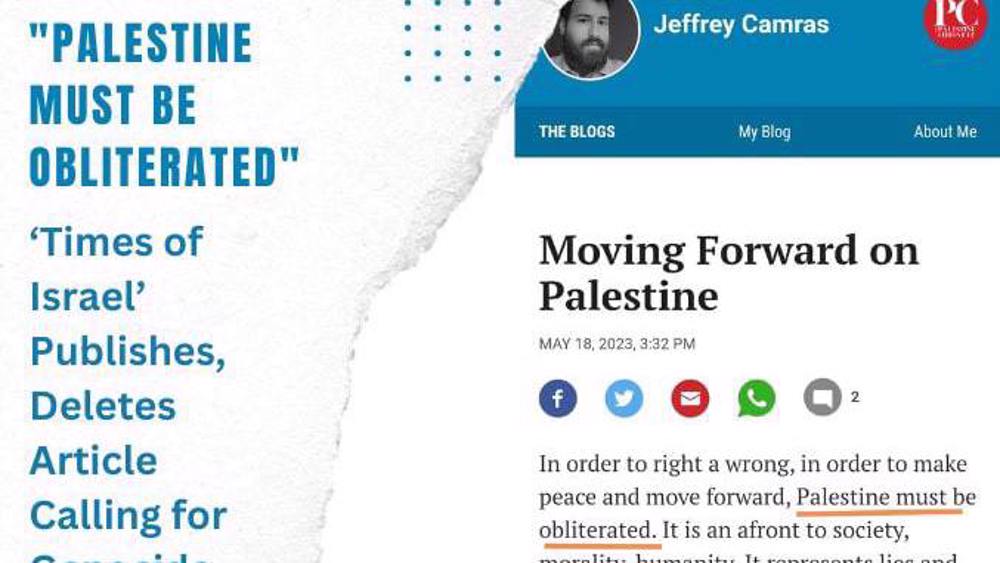

 This makes it easy to access the Press TV website
This makes it easy to access the Press TV website